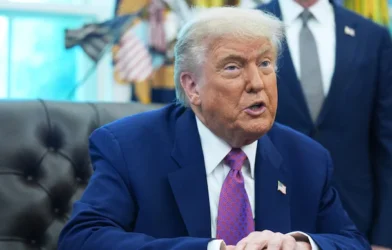Israel has held and denied entry to two British Labour MPs, sparking widespread outrage in the UK. The MPs, Yuan Yang and Abtisam Mohamed, were detained at Ben Gurion Airport on Saturday and deported hours later.
Israeli authorities accused the MPs of planning to document military activity and “spread anti-Israel hatred.” The Israeli immigration ministry said Interior Minister Moshe Arbel made the final decision after interrogating the lawmakers.
The UK government swiftly condemned the move. Foreign Secretary David Lammy called it “unacceptable, counterproductive, and deeply concerning.”
“This is no way to treat British parliamentarians,” Lammy said in a statement. “We’ve made our position clear to Israeli officials and are in contact with both MPs to offer support.”
The two MPs had traveled with charity partners to the occupied West Bank as part of an official parliamentary delegation. Their itinerary included visits to humanitarian aid projects and Palestinian communities.
In a joint statement, Yang and Mohamed said they were “astounded” by the decision. “It is vital that parliamentarians can witness the situation on the ground,” they wrote. “We must be free to speak truthfully in the House of Commons without fear of retaliation.”
Labour MP Emily Thornberry, chair of the UK Parliament’s Foreign Affairs Committee, blasted the Israeli decision as “an insult to Britain and its Parliament.” She warned Israel would “rue the day” it barred elected UK officials.
The backlash is part of growing tensions between London and the occupation state over the genocide in Gaza. UK officials have criticized the scale of Israel’s assaults, which has killed more than 50,000 Palestinians since October 2023.
Deputy Finance Minister Darren Jones said the MPs’ treatment was “unacceptable.” Mohamed and Yang have since returned safely to the UK.
Despite the condemnation, Conservative minister Kemi Badenoch defended Israel’s “right to control its borders”. “What’s shocking,” she said, “is that Labour MPs are now being banned from entering other countries.”
Human rights advocates say Israel’s move reflects a broader pattern of silencing critics, even foreign lawmakers. As calls grow for accountability and a ceasefire in Gaza, the diplomatic fallout is far from over.














Comments are closed